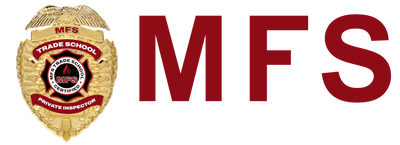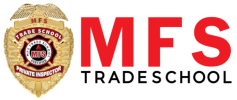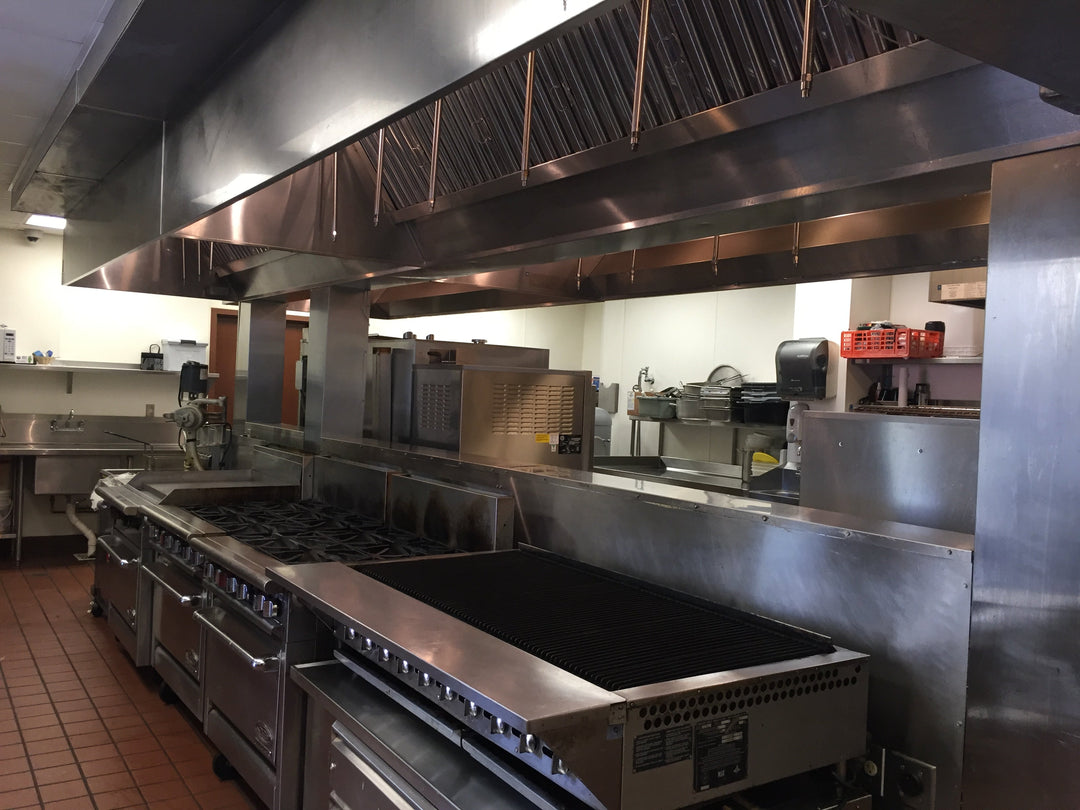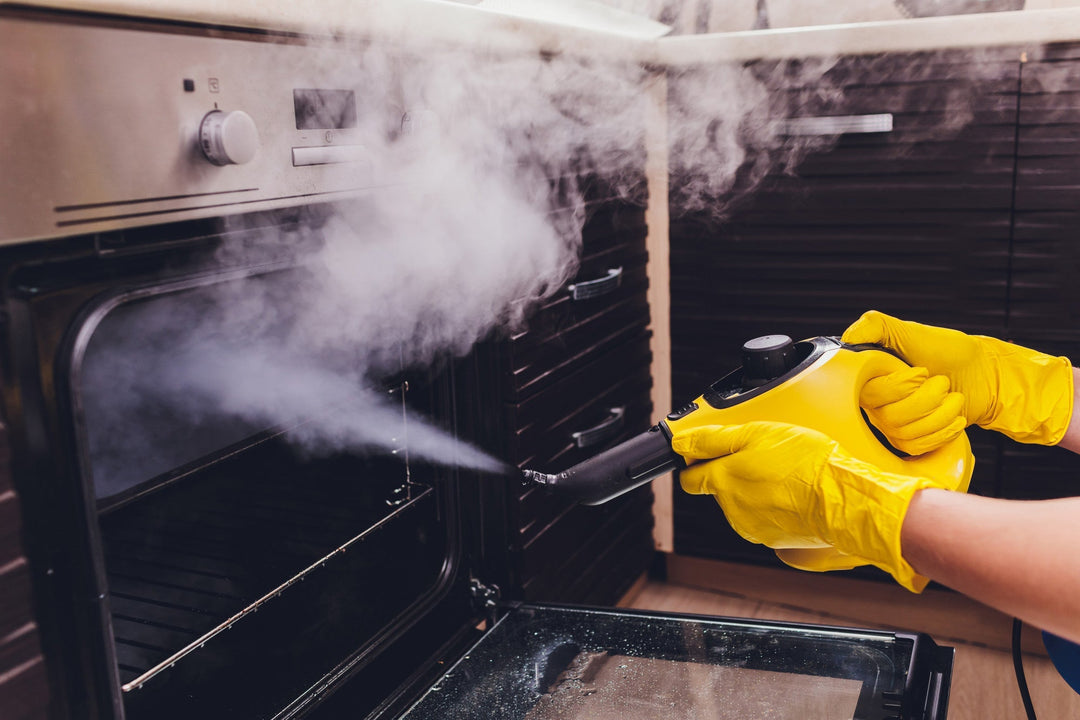Why Restaurant Chains Prefer Certified Hood Cleaners

Restaurant chains face critical safety challenges in their commercial kitchen operations. The complex network of exhaust systems, hoods, and ventilation equipment demands specialized maintenance to prevent fire hazards and ensure regulatory compliance. Certified hood cleaners play a vital role in maintaining these essential safety standards across multiple restaurant locations.
A clean, well-maintained kitchen exhaust system:
-
Reduces fire hazards
-
Maintains air quality
-
Protects staff health
-
Ensures code compliance
-
Preserves equipment longevity
The stakes are high for restaurant chains - a single kitchen fire can result in substantial losses, damaged reputation, and potential legal consequences. Professional certified hood cleaners bring specialized expertise, standardized cleaning protocols, and documented compliance procedures that safeguard restaurant operations.
The growing complexity of commercial kitchen systems, coupled with stringent safety regulations, makes certified hood cleaners indispensable partners in restaurant chain operations. Their expertise helps maintain consistent safety standards across multiple locations while protecting valuable assets and ensuring uninterrupted business operations.
To further enhance the cleanliness and safety of restaurant kitchens, MFS Trade School offers specialized equipment such as the MFS Electrostatic Misting Fogger, which is ideal for thorough cleaning. Additionally, using a pressure washing hose can significantly aid in maintaining the hygiene standards required by health inspectors.
Benefits of Hiring Certified Hood Cleaners for Restaurant Chains
Restaurant chains gain substantial advantages by partnering with certified hood cleaners. These benefits directly impact operational efficiency, safety compliance, and long-term risk management.
Enhanced Fire Prevention
Certified hood cleaners implement proactive measures to prevent kitchen fires:
-
Professional grease removal from hood systems
-
Regular inspection of potential fire hazards
-
Implementation of NFPA 96-compliant cleaning protocols
-
Systematic documentation of cleaning procedures
Cost-Effective Risk Management
By hiring certified hood cleaners, restaurant chains can effectively manage risks associated with fire incidents:
-
Reduced insurance premiums through certified maintenance
-
Prevention of costly equipment replacements
-
Minimized downtime from emergency repairs
-
Extended life span of kitchen exhaust systems
Professional Expertise
Certified hood cleaners bring specialized knowledge and skills to ensure thorough cleaning and maintenance:
-
Trained technicians with industry certifications
-
Advanced cleaning techniques and equipment
-
Knowledge of local health department regulations
-
Understanding of complex ventilation systems
Case Study: National Restaurant Chain Benefits
A major restaurant chain with 500+ locations reported a 75% reduction in kitchen fires after implementing certified hood cleaning services. Their annual maintenance costs decreased by 30% through preventive care and systematic cleaning schedules.
Regulatory Compliance
Partnering with certified hood cleaners helps restaurant chains stay compliant with health and safety regulations:
-
Health department inspection readiness
-
Updated cleaning documentation
-
NFPA 96 standard adherence
-
Insurance requirement fulfillment
Operational Advantages
The benefits of certified hood cleaning extend beyond fire prevention:
-
Improved air quality for kitchen staff
-
Enhanced ventilation efficiency
-
Reduced energy consumption
-
Consistent cleaning schedules across locations
Technical Benefits
Certified hood cleaners possess the expertise to address specific technical aspects of kitchen exhaust systems:
-
Thorough cleaning of hard-to-reach areas, which is essential for kitchen exhaust hood cleaning
-
Proper disassembly and reassembly of components
-
Identification of potential system failures
-
Professional-grade cleaning solutions and methods
Safety Standards Implementation
Certified hood cleaners play a crucial role in maintaining safety standards within commercial kitchens:
-
Regular safety assessments
-
Updated cleaning protocols
-
Staff training recommendations
-
Emergency response procedures
Certified hood cleaners bring specialized knowledge in commercial kitchen fire prevention. Their expertise extends beyond basic cleaning to include comprehensive system maintenance, safety protocols, and regulatory compliance measures. Additionally, they use advanced products like the freezer cleaner, which are effective even in extreme conditions, ensuring a thorough clean that meets safety standards.
Understanding Restaurant Compliance Standards and the Importance of Certified Hood Cleaners
Restaurant chains face a challenging task of adhering to various compliance standards for their kitchen exhaust systems. These systems are essential for ensuring good air quality and preventing fire hazards. The regulations governing these standards come from multiple authorities:
1. Health Department Regulations
The health department has specific requirements that restaurants must follow, including:
-
Annual inspections of ventilation systems
-
Keeping records of cleaning schedules
-
Measuring air quality regularly
-
Monitoring grease accumulation
2. Fire Safety Codes
Fire safety codes, such as NFPA 96, also have guidelines that restaurants need to comply with:
-
Conducting quarterly inspections for high-volume operations
-
Performing monthly inspections for solid fuel cooking operations
-
Following specific cleaning methods and documentation protocols
3. Insurance Requirements
Insurance companies have their own set of requirements that restaurants must meet:
-
Providing proof of regular maintenance
-
Verifying professional certifications
-
Submitting risk assessment documents
-
Complying with local building codes
Certified hood cleaners, like those trained at MFS Trade School, play a crucial role in helping restaurants maintain these compliance standards through various means:
1. Documentation and Reporting
Certified cleaners ensure that all necessary documentation is in order by providing:
-
Detailed cleaning reports
-
Photo evidence of completed work
-
Maintenance schedules for future reference
-
Inspection certificates as proof of compliance
2. Professional Standards Implementation
These professionals are well-versed in industry guidelines and regulations, which allows them to implement best practices such as:
-
Adhering to IKECA (International Kitchen Exhaust Cleaning Association) guidelines
-
Following NFPA 96 compliance methods specific to each restaurant's operations
-
Interpreting local codes accurately to avoid any violations
-
Staying updated with the latest cleaning techniques and technologies
3. System Performance Monitoring
Certified hood cleaners also monitor the performance of kitchen exhaust systems to ensure they are functioning optimally. This includes:
-
Measuring airflow rates to verify proper ventilation
-
Assessing grease buildup levels to determine when cleaning is necessary
-
Conducting equipment condition reports to identify any potential issues
-
Verifying safety system functionality through regular inspections
The frequency of required cleaning varies based on cooking volume:
-
Monthly: 24-hour operations
-
Quarterly: Standard restaurants
-
Semi-annually: Light-volume operations
Restaurant chains must maintain specific documentation for:
-
Health inspections
-
Insurance audits
-
Fire marshal visits
-
Corporate compliance reviews
Certified cleaners ensure proper maintenance through:
-
Standardized cleaning protocols, such as those learned in MFS's Kitchen Exhaust Hood Cleaning program
-
Advanced equipment usage,e including pressure washers and foam sprayers from their Gold Equipment Package
-
Safety compliance verification
-
Regular system assessments
These professionals maintain detailed records of:
-
Cleaning dates
-
System conditions
-
Repairs needed
-
Compliance status
Restaurant chains partnering with certified cleaners receive:
-
Automated scheduling for convenience and efficiency
-
Digital documentation for easy access and storage
-
Compliance tracking to ensure all requirements are met
-
Inspection preparation support to streamline audits
The Importance of Certification in Kitchen Cleaning Services
Certification is crucial in the kitchen exhaust cleaning industry. It serves as a benchmark for assessing the skills and knowledge of technicians. Certified professionals have proven their expertise in various areas, including:
-
Advanced cleaning techniques for different hood types
-
Proper handling of specialized cleaning equipment
-
Understanding of ventilation system components
-
Knowledge of fire prevention protocols
-
Safe chemical handling procedures
-
Documentation and reporting methods
Industry-Recognized Certification Programs
The International Kitchen Exhaust Cleaning Association (IKECA) offers three levels of certification:
-
CECS (Certified Exhaust Cleaning Specialist)
-
Entry-level certification
-
Focuses on fundamental cleaning techniques
-
Covers basic safety protocols
-
CECT (Certified Exhaust Cleaning Technician)
-
Advanced operational knowledge
-
System inspection expertise
-
Complex cleaning methodologies
-
CESI (Certified Exhaust System Inspector)
-
Highest level of certification
-
Comprehensive system evaluation
-
Risk assessment capabilities
Technical Expertise Requirements
Certified professionals must demonstrate proficiency in:
-
Ventilation system dynamics
-
Airflow measurement techniques
-
Grease accumulation assessment
-
Fire suppression system maintenance, including understanding fire protection in HVAC design
-
Code compliance verification, which may involve referencing documents such as the DAFMAN91-203
-
System performance optimization
Training and Education Components
Certification programs include rigorous training in:
-
Hood design specifications
-
Exhaust fan maintenance
-
Ductwork cleaning procedures
-
Fire safety regulations
-
Health code requirements
-
Environmental compliance
For those considering a career in this field, understanding the costs, training, and certification requirements is crucial. Starting a hood cleaning business can be a rewarding venture, but it requires a solid foundation in understanding entrepreneurship and the necessary skills.
Continuous Professional Development
Certified hood cleaners maintain their expertise through:
-
Regular skill updates
-
Technical workshops
-
Safety procedure reviews
-
Equipment handling training is vital as regular equipment maintenance can boost efficiency, reduce downtime, and save on costly repairs.
-
Industry standard updates
-
Best practice implementations
Certification programs require periodic renewal, ensuring professionals stay current with evolving industry standards and technological advancements in kitchen ventilation systems. This commitment to ongoing education directly impacts the quality of service provided to restaurant chains.
Moreover, the significance of regular kitchen exhaust cleaning cannot be overstated.
Strategies for Ensuring Fire Safety in Commercial Kitchens
Fire prevention in commercial kitchens requires a systematic approach based on proven safety protocols. Restaurant chains use these critical strategies to maintain a secure cooking environment:
1. Daily Cleaning Protocols
-
Wipe down hood surfaces after each shift
-
Remove grease accumulation from filters
-
Clean cooking equipment surfaces
-
Document cleaning activities in the safety logs
2. Professional Maintenance Schedule
-
Monthly inspection of hood system components
-
Quarterly deep cleaning of exhaust ducts
-
Semi-annual fire suppression system testing
-
Annual certification of ventilation equipment
3. Fire Risk Prevention Measures
-
Install temperature monitoring devices
-
Maintain proper clearance between cooking equipment
-
Keep updated fire extinguishers within reach
-
Train staff on emergency response procedures
Certified kitchen exhaust cleaning technicians play a vital role in executing these safety measures through:
1. Specialized Inspection Services
-
Grease depth measurements
-
Access panel integrity checks
-
Fan belt tension verification
-
Ductwork obstruction assessment
2. Advanced Cleaning Techniques
-
High-pressure washing systems
-
Chemical degreasing applications
-
Mechanical scraping methods
Restaurant chains partner with certified contractors to implement comprehensive safety protocols:
1. Documentation Requirements
-
Detailed cleaning reports
-
Photo documentation
-
Compliance certificates
-
Insurance verification
2. Equipment Maintenance Standards
-
Filter replacement schedules
-
Exhaust fan servicing
-
Duct sealing procedures
-
Hood system calibration
Professional kitchen exhaust contractors utilize industry-approved tools and methods to maintain ventilation systems at peak performance. Their expertise ensures all components meet commercial hood cleaning standards and fire safety regulations.
Restaurant foodservice ventilation experts conduct thorough system evaluations to identify potential hazards:
-
Grease accumulation points
-
Air flow restrictions
-
Mechanical wear patterns
-
Electrical connection integrity
These comprehensive fire prevention strategies protect restaurant assets while maintaining optimal kitchen operations. Certified technicians ensure each safety measure aligns with local codes and national standards for commercial kitchen compliance. Notably, effective hood cleaning strategies are crucial in preventing fire hazards and promoting a safe kitchen environment.
Furthermore, understanding the restaurant fire protection basics is essential for enhancing safety protocols.
Additionally, advanced virus disinfection methods are essential for ensuring public health and safety, especially given the rise of foodborne illnesses and viral outbreaks. Implementing effective cleaning protocols not only protects customers but also enhances overall kitchen safety.
Liability Reduction and Risk Management Strategies for Restaurant Chains
Restaurant chains face significant liability risks in their daily operations. A comprehensive risk management strategy protects both assets and reputation while ensuring regulatory compliance.
Essential Risk Management Components:
-
Documentation Systems: Detailed maintenance logs, regular inspection records, employee training documentation, incident reporting protocols, and photographic evidence of cleaning procedures
-
Insurance Coverage Assessment: Property damage protection, business interruption coverage, general liability insurance, workers' compensation, professional liability coverage
-
Proactive Safety Measures: Employee training programs (regular safety certification updates, emergency response protocols, equipment operation guidelines, cleaning procedure standards, risk awareness education), vendor management (contractor insurance verification, professional certification checks, performance monitoring systems, quality assurance protocols, regular service evaluations)
-
Risk Mitigation Through Technology: Digital monitoring systems for ventilation performance, automated maintenance scheduling, real-time compliance tracking, mobile inspection applications, cloud-based documentation storage
-
Legal Protection Strategies: Regular legal audits of safety protocols, updated service agreements with contractors, clear accountability structures, standardized incident response procedures, chain-wide compliance monitoring
-
Health Department Compliance: Pre-emptive inspections, corrective action documentation, regular communication with health officials, updated permit maintenance, violation prevention protocols
-
Financial Risk Management: Budget allocation for safety measures, cost-benefit analysis of preventive maintenance, emergency fund establishment, insurance premium optimization, ROI tracking on safety investments
Restaurant chains implementing these strategies create a robust defense against potential liabilities. Working with certified contractors and maintaining detailed records reduces exposure to legal and financial risks. These practices protect both the business and stakeholders while maintaining operational efficiency.
In addition to these strategies, leveraging customer feedback can also play a crucial role in risk management. For instance, using custom video reviews from customers can provide valuable insights into areas that may need improvement or highlight successful aspects of the restaurant chain's operations. This type of feedback can help in refining processes and enhancing customer satisfaction.
Moreover, partnering with a Professional Employer Organization (PEO) can further streamline risk management services such as employee training and compliance monitoring. This not only reduces liability risks but also allows restaurant chains to focus more on their core operations while ensuring a safer working environment.
Why Restaurant Chains Choose Certified Hood Cleaners Over Non-Certified Ones?
Restaurant chains prioritize certified hood cleaners based on specific operational and business requirements that directly impact their success and safety standards. Here's what drives their selection process:
1. Documentation and Accountability
Certified cleaners maintain detailed service records, professional documentation for insurance requirements, systematic tracking of cleaning schedules, and verifiable proof of work completion.
2. Technical Expertise
Certified hood cleaners possess advanced knowledge of different hood system designs, understanding of manufacturer specifications, proper handling of specialized cleaning equipment, and expertise in identifying potential system failures.
3. Brand Protection Measures
Restaurant chains rely on certified cleaners to uphold consistent cleaning standards across locations, maintain a professional appearance and conduct, adhere to corporate safety protocols, and protect the restaurant's reputation.
4. Insurance Benefits
Choosing certified hood cleaners can lead to potential premium reductions, enhanced coverage options, risk assessment advantages, and compliance with insurance requirements.
5. Quality Assurance Systems
Certified cleaners implement standardized cleaning procedures, conduct regular performance evaluations, establish quality control measures, and ensure consistent results across multiple locations.
6.Professional Training Standards
Certified hood cleaners stay updated on fire codes through ongoing education requirements, maintain safety certifications, and undergo regular skill assessments.
Restaurant chains recognize that certified hood cleaners bring specialized expertise in grease exhaust system maintenance. These professionals understand the complexities of commercial kitchen ventilation systems and apply standardized cleaning protocols that protect both property and personnel.
The certification process ensures hood cleaners stay current with industry regulations and technological advancements. This expertise translates into thorough cleaning practices that address hidden fire hazards and maintain optimal system performance.
Certified cleaners also provide detailed inspection reports and maintenance recommendations that help restaurant chains plan preventive maintenance schedules. This proactive approach helps prevent system failures and reduces operational disruptions across multiple locations.
For those looking to enter this field, comprehensive training and certification programs are available through institutions like the MFS Trade School, which offers courses in areas such as exhaust cleaning. These programs not only equip individuals with the necessary skills but also provide key strategies for transforming a hood cleaning business in just one year, as detailed in their blog post.
Conclusion
Restaurant chains face critical decisions in maintaining their kitchen safety standards. The choice between certified and non-certified hood cleaners impacts every aspect of restaurant operations - from daily safety to long-term business sustainability.
Professional certification represents a commitment to excellence in kitchen exhaust maintenance. Certified cleaners bring specialized knowledge in grease removal, air quality control, and ventilation system maintenance. Their expertise ensures restaurants meet stringent health inspection requirements while maintaining optimal kitchen operations.
The investment in certified hood cleaning services delivers substantial returns:
-
Protection of valuable kitchen assets
-
Enhanced workplace safety standards
-
Reduced liability exposure
-
Peace of mind for restaurant owners
Restaurant chains seeking to maintain their reputation and protect their investments partner with certified professionals who understand the complexities of commercial kitchen systems. These partnerships create safer environments for staff and customers while ensuring compliance with industry regulations.
Take action now to elevate your kitchen's safety standards. Connect with certified hood cleaning professionals who possess the training, expertise, and commitment to maintain your restaurant's ventilation systems at peak performance. Your kitchen's safety deserves nothing less than certified excellence.
If you're interested in becoming a certified hood cleaner yourself, consider exploring the comprehensive training programs offered by MFS Trade School. These programs meet industry standards and prepare professionals for success in commercial kitchen maintenance.
FAQs (Frequently Asked Questions)
Why do restaurant chains prefer hiring certified hood cleaners for their kitchen maintenance?
Restaurant chains prefer certified hood cleaners because they ensure improved kitchen safety, reduce the risk of fires, and help maintain compliance with industry standards such as NFPA 96. Certified professionals possess the expertise to effectively clean and maintain commercial kitchen ventilation systems, which is crucial for food safety and fire prevention.
What are the key benefits of using certified hood cleaning services in commercial kitchens?
Certified hood cleaning services provide numerous benefits, including thorough grease removal, enhanced fire hazard prevention, adherence to restaurant kitchen sanitation guidelines, and maintaining optimal air quality. These services also support compliance with health codes and fire safety regulations, thereby protecting restaurant operations from potential liabilities.
How do certified hood cleaners contribute to restaurant chain compliance with health and fire safety standards?
Certified hood cleaners help restaurant chains comply with health department regulations and fire codes by performing professional exhaust system inspections and maintenance according to prescribed schedules. Their expertise ensures that kitchen ventilation systems meet local health codes, insurance requirements, and fire marshal inspection standards, facilitating smoother audits and reducing the risk of violations.
What certifications should restaurant chains look for when selecting a professional hood cleaning service?
Restaurant chains should seek services certified by recognized organizations such as the International Kitchen Exhaust Cleaning Association (IKECA). These certifications indicate that the cleaners have undergone rigorous training in professional kitchen ventilation cleaning, grease removal techniques, and adhere to best practices in exhaust system maintenance and fire safety.
What strategies can restaurant chains implement to reduce fire risks in their commercial kitchens?
To reduce fire risks, restaurant chains should schedule regular maintenance and thorough cleaning of kitchen hoods and exhaust systems by certified professionals. Implementing comprehensive safety inspections, adhering to commercial hood cleaning standards, ensuring proper operation of fire suppression systems, and educating staff on ventilation safety are vital components of an effective fire prevention strategy.






